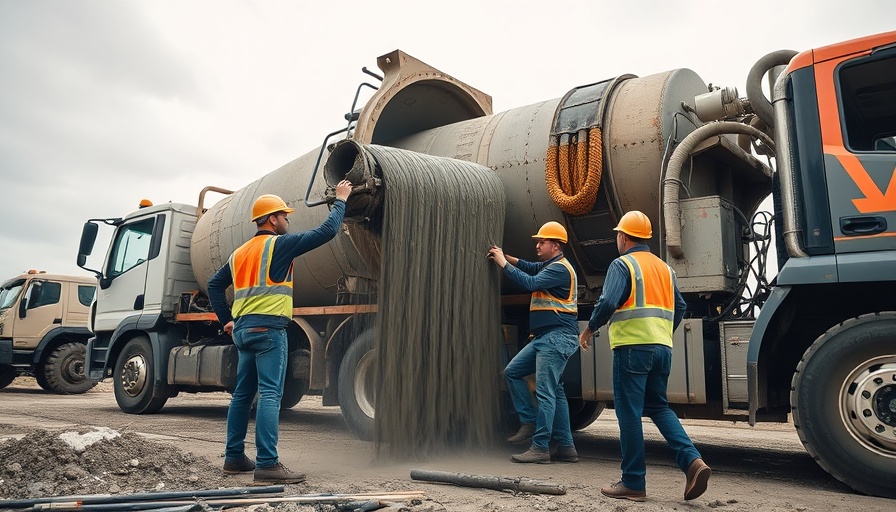
Boral's Innovative Trials of Solar Glass Sand Revolutionize Construction
Boral Limited is embarking on a groundbreaking journey, utilizing crushed glass from end-of-life solar panels as an innovative substitute for natural sand in concrete production. This initiative is part of efforts to enhance sustainability in the construction industry, aligning with Victoria’s North East Link project—the largest infrastructure investment in Melbourne's history.
A Sustainable Solution for the Construction Industry
With the depletion of natural sand—a crucial resource in construction—Boral has taken a proactive step towards sustainability. The new solar glass sand, which comprises up to **50%** recycled content, offers an alternative that not only reduces the demand for traditional sand but also tackles the pressing issue of waste from solar panels. As the use of solar energy surges, so does the challenge of managing end-of-life panels, creating a potential environmental crisis if not addressed adequately.
The Role of ElecSome in Recycling Solar Panels
Crucial to this initiative is ElecSome, an Australian solar panel upcycling facility that specializes in reclaiming materials from damaged or end-of-life panels. At ElecSome's facility, the panels are transformed into crushed glass, raising questions not only about recycling but about reimagining how we utilize materials traditionally classified as waste. As Dr. Ylias Sabri, a materials scientist, notes, the proper recycling of solar panels can prevent environmental hazards like heavy metal leaching and emissions from burning.
The North East Link Project: A Testing Ground
Currently, Boral's solar glass concrete mixes are under rigorous testing at their Bulleen Concrete Plant, which supplies materials specifically for the North East Link project. This high-profile endeavor, which includes constructing **6.5 kilometers** of tunnels, serves as an ideal platform for evaluating the performance, reliability, and environmental impact of this innovative concrete mix.
Environmental and Economic Benefits
The introduction of solar glass sand in concrete manufacturing presents myriad benefits. Firstly, it contributes to reducing the ecological footprint of construction activities, which are traditionally heavy polluters. Moreover, implementing a circular economy approach in construction, as encouraged by this initiative, underscores Boral’s commitment to sustainability. This aligns with the rising global trend towards environmentally friendly building practices and positions Boral as a leader in this essential shift.
Expert Insights: A Step Towards Circular Economy
Dr. Ali Nezhad, Head of Sustainability and Innovation at Boral, emphasizes that this trial showcases the potential of reusing materials effectively. “At Boral, we are committed to finding ways to be more sustainable and push the boundaries of innovation,” he said. The potential success of this trial could pave the way for similar projects globally, encouraging a massive shift in how construction materials are sourced and utilized.
Future of Solar Glass Sand in Concrete Production
The implications of this initiative extend beyond local borders. As stated in a report by Waste Management Review, the market for recycled solar panel materials is expected to grow significantly, generating new avenues for sustainable construction. Boral’s proactive innovation in this field can set a precedent, encouraging other industries to reconsider their waste streams and product lifecycles.
Conclusion: Shaping the Future of Construction
Boral's trials of solar glass sand as a concrete ingredient symbolize a forward-thinking approach towards sustainability in construction. As Boral continues to assess the long-term performance of this innovative material, the construction industry awaits what could be a transformative moment in adopting recycling principles at scale. Embracing innovations like these is essential not just for environmental sustainability but also for fostering a new era of responsible construction practices.
Stay informed about Boral’s progress and the broader developments in sustainable construction materials. To learn more about their journey, visit their website and explore how you can contribute to a sustainable future in your projects.
 Add Row
Add Row  Add
Add 




 Add Row
Add Row  Add
Add 

Write A Comment